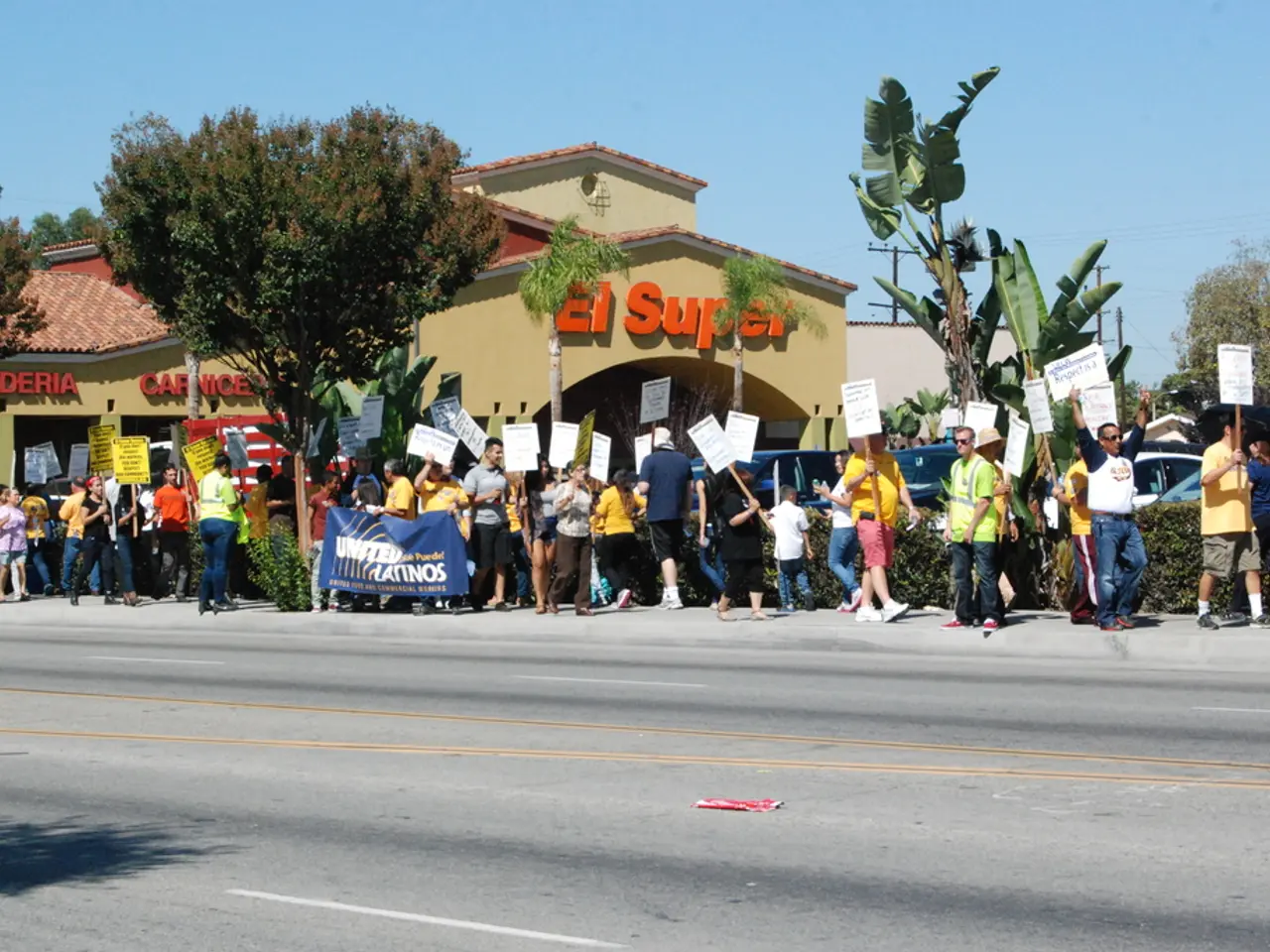Citizens Cast Votes in Largest German State Election, Amid Growing Support for Alternative for Germany Party
On Sunday, September 14th, voters in Germany's most populous state, North Rhine-Westphalia, will cast their ballots in local elections that are being closely watched across the nation. The Christian Democratic Union (CDU) and the Social Democratic Party (SPD) are expected to lead the polls, but both parties face significant trust losses locally. The Alternative for Germany (AfD), a party that has been gaining momentum, is seen as a party that could experience strong gains.
According to recent forecasts, the CDU is predicted to remain the strongest party in the state elections, with an estimated 36% of the vote. The SPD is expected to follow closely with 23%. However, the AfD is forecast to triple its result from 2020, capturing an estimated 15% of the vote and becoming the third-strongest force in the state.
The rise of the AfD in North Rhine-Westphalia reflects a deeper discontent among voters who feel that mainstream politicians ignore their concerns, particularly on immigration. Economic stagnation and rising unemployment in the state have also contributed to the AfD's growth. Merz, the CDU leader, has presided over the first increase in joblessness above three million in a decade.
In Cologne, all major parties except the AfD have signed a "fairness agreement" pledging not to discuss the disadvantages of immigration. The AfD, excluded from the agreement, is the only party openly addressing migration-related problems in North Rhine-Westphalia. This approach seems to have resonated with voters, as many now rate the AfD as the most competent on asylum policy.
The elections are seen as a significant test for Chancellor Friedrich Merz's national government. Merz's CDU governs locally in coalition with the Greens in North Rhine-Westphalia, but half of residents are dissatisfied with the government led by Minister-President Hendrik Wüst. National polls show only 22% of Germans are satisfied with Merz's government.
The AfD is not expected to win mayoralties outright, but a surge in council representation or breakthroughs into second rounds would be unprecedented in North Rhine-Westphalia. The SPD is facing a collapse on its home turf, the industrial heartlands of the Ruhr, where its traditional base of steel, chemical, and automotive workers fear for their livelihoods.
One in four residents in North Rhine-Westphalia has an immigration background, mirroring Germany as a whole. Attempts to restrict public debate have reportedly backfired in North Rhine-Westphalia, with the AfD's open discussion of migration-related issues striking a chord with many voters. The results in North Rhine-Westphalia will have implications beyond the state's borders, as they may indicate broader shifts in the political landscape of Germany.
Read also:
- United States tariffs pose a threat to India, necessitating the recruitment of adept negotiators or strategists, similar to those who had influenced Trump's decisions.
- Weekly happenings in the German Federal Parliament (Bundestag)
- Southwest region's most popular posts, accompanied by an inquiry:
- Discussion between Putin and Trump in Alaska could potentially overshadow Ukraine's concerns








